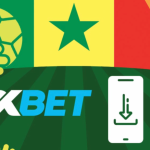Bankroll management isn’t flashy. It won’t make you rich overnight or guarantee perfect predictions. But ask any seasoned bettor what separates consistent winners from casual gamblers, and they’ll tell you: it’s not luck, it’s control.
Your bankroll is the total amount of money you’ve set aside for betting. It’s your fuel, your foundation. And like any limited resource, how you manage it directly affects how long you’ll stay in the game—and how smart you look doing it.
Why Most Bettors Get It Wrong
Let’s be honest: many new bettors don’t even think about bankroll management. They deposit a bit of money, win some, lose more, chase losses, and then reload or give up.
That’s not a strategy. It’s a slow-motion accident.
Proper bankroll management isn’t just about staying safe—it’s about staying alive long enough to use what you’ve learned. Every experienced bettor has had downswings. The ones who make it through aren’t necessarily better at predicting matches. They’re just better at surviving them.
Golden Rule: Only Bet What You Can Afford to Lose
This is where all responsible betting begins. If the money in your bankroll affects your rent, groceries, or mental peace, step away.
Bankroll should be:
- A separate amount, not mixed with daily finances
- Fixed for a period (weekly, monthly, seasonally)
- Seen as an investment in entertainment, not income
Once you define your bankroll, the next step is to determine your unit size.
How to Set a Betting Unit
A “unit” is a fixed percentage of your bankroll that you use for a single bet. It keeps your stake consistent and emotion-free.
Typical bankroll strategies:
- Flat Betting: Always wager 1-2% of your bankroll per bet
- Confidence Scale: Bet 1-3 units depending on how confident you feel
- Kelly Criterion (advanced): Adjust bet size based on edge and odds
Avoid staking more than 5% of your bankroll on any single wager. Even the best tips can lose.

Smart Habits for Bankroll Discipline
Daily/Weekly Practices:
- Track your bets: use a spreadsheet or app
- Don’t chase losses or over-celebrate wins
- Take breaks: overbetting often follows fatigue or emotion
- Review your bet types: are parlays eating your bankroll?
Avoidable Mistakes:
- Doubling your bet after a loss (aka Martingale)
- Going “all-in” on one game to make up for previous losses
- Bumping up stakes after a lucky win streak
- Betting under the influence or in emotional states
List 1: Questions to Ask Before Every Bet
- What’s my confidence level in this pick?
- Is this within my staking rules?
- Am I placing this bet emotionally or logically?
- Will I regret this amount if I lose?
- Am I sticking to my long-term strategy?
Being strict here can prevent 90% of poor decisions.
List 2: Tools That Help You Stay Disciplined
- Bankroll tracker apps (like Betstamp, Pikkit, or Excel)
- Deposit limits on your sportsbook
- Weekly recap logs
- Betting groups or communities for accountability
- Visual charts of your wins/losses over time
Final Word
The truth? Great bets sometimes lose. Bad bets sometimes win. The only thing you can control is your process — and bankroll management is the heart of it.
If you’re serious about sports betting, you need more than tips. You need discipline. You need a system. And most importantly, you need patience.
Your bankroll isn’t just a number. It’s your staying power. Respect it, protect it, and let it work for you, not against you.



